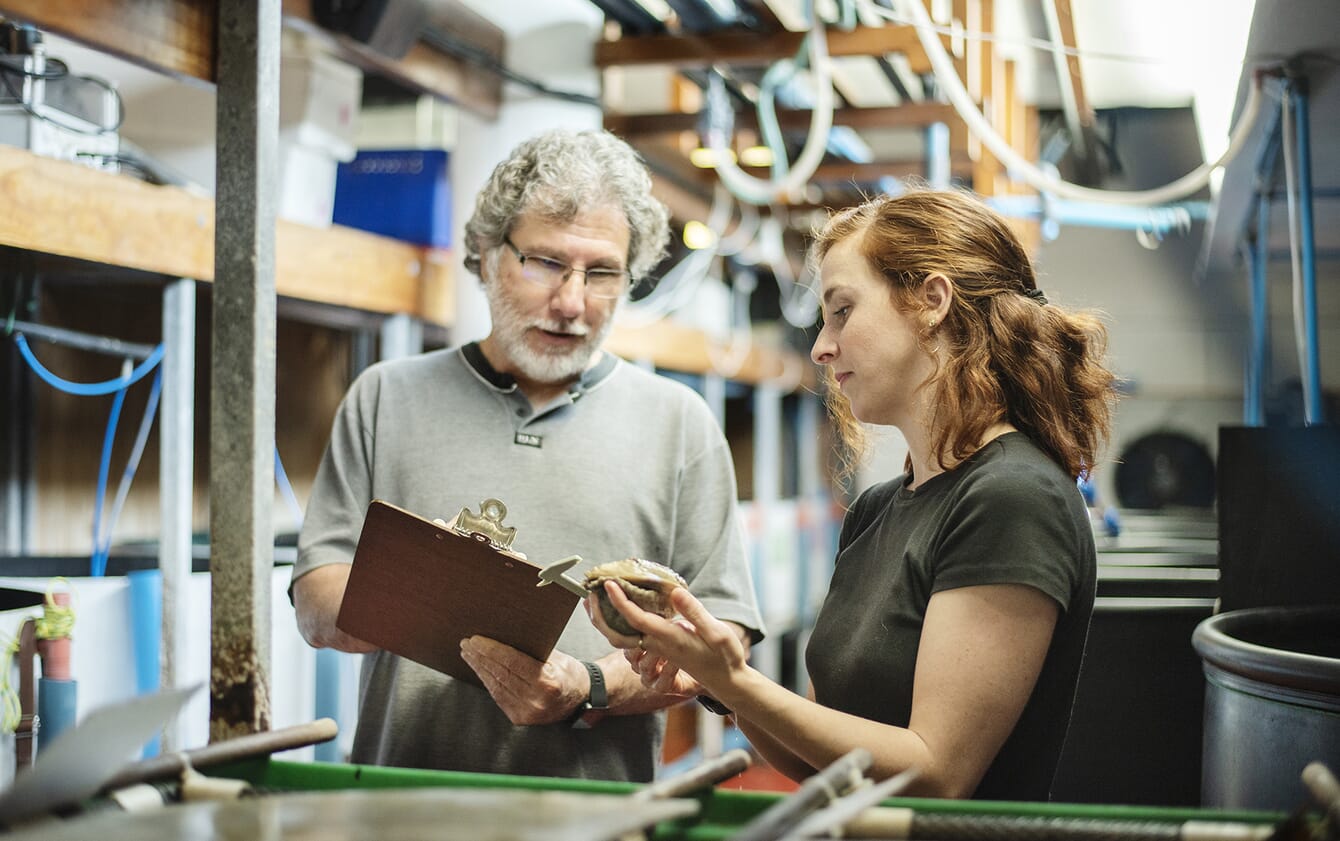
MariHealth's tool measures protein levels in a range of farmed aquaculture species over time © MariHealth Solutions
Initially developed for the South African abalone industry, the tool can measure protein levels in a range of farmed animals over time. It not only allows farmers to establish whether and why their animals are experiencing chronic stress, allowing timely amendments to standard operating procedures, but it can also provide a granular assessment of the impact different feed formulations have on key factors, such as metabolism and health status.
MariHealth Solutions is a spin-out from the University of Cape Town, where co-founder Vernon Coyne led a marine biotechnology research group that mostly focused on the commercially important South African abalone species Haliotis midae. Having conducted applied research in collaboration with the aquaculture industry for many years, Coyne’s first product was a probiotic for farmed abalone.
“We identified probiotics that improved the growth and survival rates of farmed abalone – both in grow-out farms and hatcheries. We also worked on bacterial pathogens that were degrading cultured Gracilaria gracilis seaweed during the summer months in Saldanha Bay. Later, we began focusing on the abalone immune system – looking at stress and immune genes that are induced in response to infection, probiotic treatment and climate change, such as elevated water temperature and decreased pH. Initially, we employed cDNA microarrays to measure gene expression, but later switched to a proteomics approach since proteins have a longer half-life and therefore, changes in protein levels in response to various factors affecting the animal are easier to detect,” he explains.
Sarah Carroll, who joined the Coyne lab in 2014 as a postgraduate student and continued as a research scientist after obtaining her PhD, co-founded MariHealth Solutions with Coyne in 2021, when they realised the commercial potential of their research.
While the abalone probiotic was the first product they looked to commercialise, it proved to be the gateway for another, potentially much more exciting, discovery by Coyne and Carroll.
“The probiotic has been in development for about 20 years due to difficulties in scaling from a lab setting to on-farm application. We haven’t abandoned it, but our current focus is on utilising proteomics to assess the stress and metabolic status of farmed abalone. We are extending the technology to include fish and shrimp,” Carroll explains.
“It was fortuitous in how it all played out, but for me the really big driving factor is that I believe in the research that Vernon has conducted over the last few decades and feel there’s huge applicability and real-world utility for this research,” she adds.
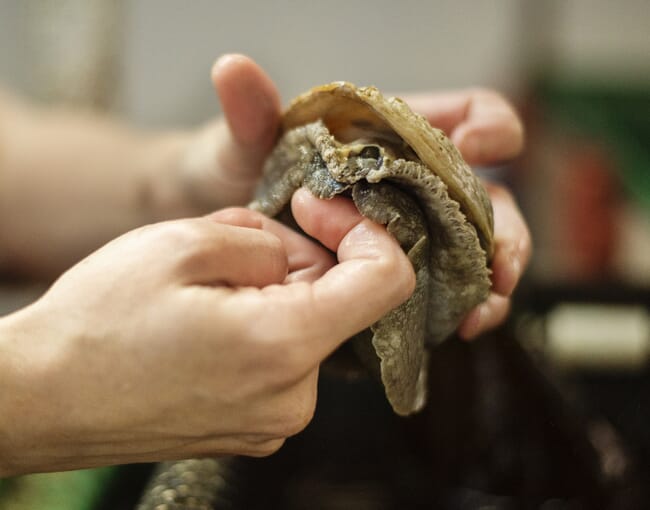
The team is using proteomics to assess the stress and metabolic status of farmed abalone and hopes to apply the technology to other farmed species © MariHealth Solutions
Their next challenge was to deploy their techniques in the field. While they admit it’s taken a while for them to find farmers willing to engage with the novel idea, they now have several commercial partners – both farmers and aquaculture vets.
Reducing stress is beneficial – both for animal welfare and the farm’s profit margins
Blood samples are collected from a representative number of individual animals – ideally 50-100 per batch – and analysed by tandem mass spectrometry, yielding information regarding the expression levels of several hundred proteins. The process takes about a week, less than the time taken for screening conventional histological samples. Changes in key metabolic and/or immune system protein levels can be detected earlier and at a sensitivity that is not possible with current testing, according to Carroll.
“If you reduce chronic stress in an animal, more energy becomes available for growth, which in turn, would decrease time spent on the farm, lowering the chance of stock loss due to various unforeseen events that may arise, such as infectious disease outbreaks. This is particularly important for abalone farms, since it takes four to five years to grow the animals to market size,” Coyne points out.
“You also improve the quality of the farmed product. Our system allows abalone farmers to assess the health status of their broodstock without killing them, as we just need a blood sample – farmers are really excited about that,” he adds.
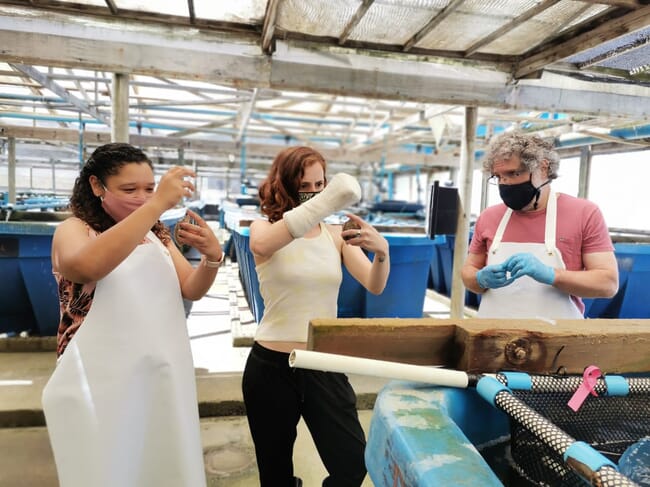
MariHealth's system allows abalone farmers to determine the health status of their broodstock without sacrificing them © MariHealth Solutions
“From the data, we can identify the proteins that were detected, which of these are up- and down-regulated and determine what role they play in terms of the animal’s metabolism and physiology. This allows us to provide farmers and vets with a more granular assessment of what’s happening in the animal – not just growth or histological data, which is what they currently get,” he continues.
Farmers have noted the huge potential of the technology, but not just in the way that the researchers envisaged.
“Several farms have told us that the technology could be a very useful tool for optimising their farming practices, especially in RAS facilities, and refining their feeds and feeding regimes. This is particularly advantageous in the abalone space, where it can take between four to six months to evaluate a particular feed, during which time a range of confounding variables could influence the outcome of the growth trial. Instead, the technology would allow significantly shorter feed trials, as it would detect changes in metabolic proteins in response to the feed over a significantly shorter period,” says Carroll.
Consequently, feed companies have expressed their interest in the technology, stating that it could allow them to measure the impact that small changes in feed formulation may have on the metabolic processes of an animal.
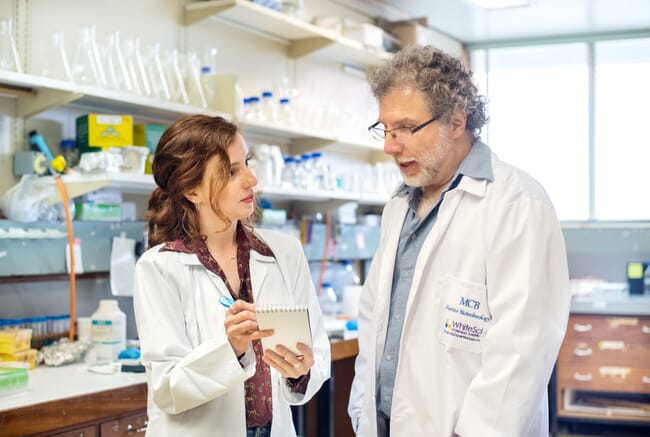
The technology may help farmers optimise their husbandry practices, feeding protocols and help manage RAS facilities © MariHealth Solutions
The researchers have recently completed sampling 2,000 abalone from two different farms in South Africa – the first full-scale test of their technology – and are looking forward to analysing the data. Meanwhile, they are planning to sample farmed trout to measure stress prior to harvest.
MariHealth Solutions is currently working with certified aquatic veterinarian Dr Brandon Spolander, owner of Aquavet Africa, who is liaising with companies in Europe that are interested in using the tool for their own R&D processes. Indeed, the startup will be accepting samples from abroad which will be analysed in South Africa and a comprehensive report provided digitally to the client.
Spolander is enthusiastic about the technology and its potential ability to detect health issues earlier than other techniques used by vets on farms. “The two big roles that I see proteomics playing is managing fish in large RAS facilities more proactively, thus more cost-effectively and in welfare. With higher welfare farming our metrics can be quite vague and more focused on end-point measurements. Proteomics certainly can give us more objective metrics to use,” he explains.
“As we move more away from the reactive process of using antibiotics to solve problems and rely more on proactive prophylactic strategies, I firmly believe that tools like proteomics will help to illustrate what management tools and techniques work and – importantly – by how much,” he adds.
Looking ahead
MariHealth Solutions is currently looking to raise around US$1.5 million in the mid-term – enough for them to expand their team and to purchase a next-generation mass spectrometer to increase their analytical capacity.
In the longer term, they are considering moving headquarters to Europe and expanding their reach into the salmon, trout, seabass, sea bream and shrimp sectors. In addition, they are planning to work with feed companies internationally, to assist with evaluating feed formulations and supplements.
Carroll and Coyne see the technology as potentially playing an integral role in safeguarding the future of aquaculture, despite the growing challenges facing farming globally.
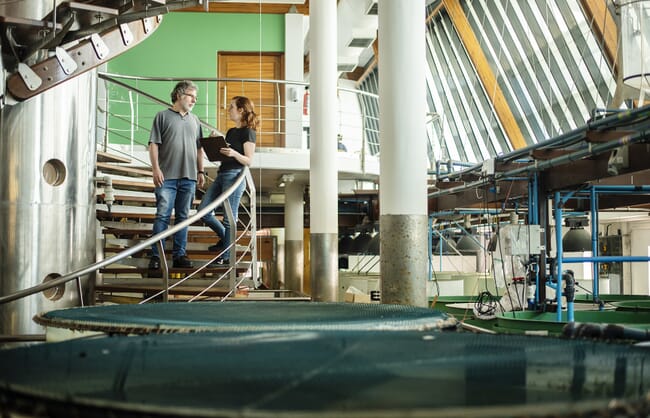
Coyne and Carroll are keen on expanding their species offering and entering the European aquaculture market © MariHealth Solutions
“Whether we like it or not, current food production practices cannot remain the status quo as climate change increasingly impacts food production globally. Innovative ways of improving the viability and sustainability of seafood farming throughout the supply chain need to be adopted to meet the growing global demand for protein-rich foods,” reflects Carroll.
“Aquaculture is now entering a new phase where the increasing use of technological innovation will positively affect the quality, sustainability, profitability and ethical production of farmed fish and shellfish,” adds Coyne.
Both hope that MariHealth Solutions will enable them to contribute to this next phase of the aquaculture industry.




